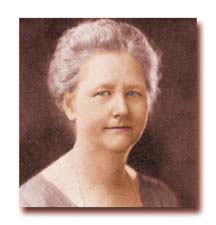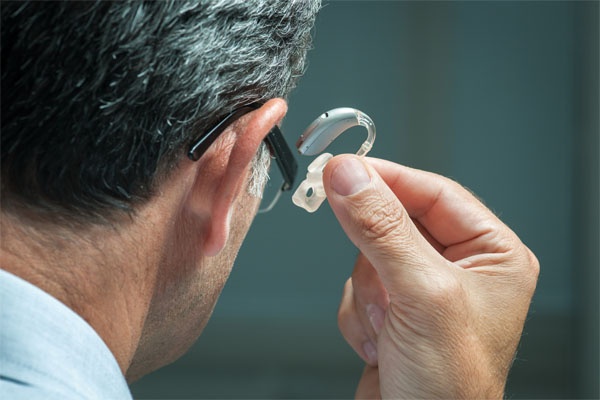The announcement by the Food and Drug Administration finalizing the ruling that allows for Over-the-Counter (OTC) hearing aid sales is good news for increased access to hearing health care. It will provide increased access to hearing aids for adults (ages 18 and older) who have mild to moderate hearing loss. This can be an initial step to the acceptance and treatment of hearing loss, much like reading glasses for eyesight. OTC hearing aids are not appropriate for children or those with moderate to severe or profound hearing loss.
As an agency with a 101-year history of providing access to hearing health care for all people including marginalized and vulnerable populations, Cleveland Hearing & Speech Center (CHSC) believes this is a step in the right direction for a more global acceptance of the treatment of hearing loss and with Baby Boomers hitting retirement ages, it could not be timelier.
However, at CHSC, we encourage people to undergo an audiologic evaluation (hearing test) before purchasing any hearing aids. A proper diagnosis of the degree of hearing loss results in a more accurately programmed hearing aid – much like a proper prescription for glasses. A hearing evaluation will also identify any underlying medical conditions that may be causing the hearing loss.
CHSC's commitment to hearing health will continue into the next century. We will continue to provide professional audiology services to those who purchase their hearing aids – now including OTC aids - but may find they need additional support.
In addition, CHSC will continue to provide our full range of hearing aid services for all degrees of hearing loss and all ages. Low-cost and no-cost options for hearing aids may include health insurance with hearing aid benefits such as some Medicare Advantage plans, Medicaid, and our Audiology Patient Assistance Program (APA).
Over-the-Counter Hearing Aids - What You Should Know
Tags: Hearing Aid, Audiology, Hearing Aids, Hearing, Hearing Loss Prevention, Hard of Hearing, Hearing Loss, "ears", Communication Access, Medicare
Hearing Health Care and Medicare Advantage Plans
At Cleveland Hearing & Speech Center (CHSC) your hearing health care is of primary importance to us. In addition, we are here to help you investigate your options for any expenses associated with your care. Many insurance plans now cover hearing aids, including some Medicare Advantage plans. These plans may offer hearing aids at low or no cost to you. Traditional Medicare does not provide any hearing aid benefits.
Tags: Audiology, Hearing Aids, Hearing, Medicare
Tinnitus and COVID-19
It is estimated that around 15% of Americans experience tinnitus. Tinnitus is described differently by different people. It has been described as a ringing, chirping, rushing air “whooshing” noise, hissing, or whining sound. No matter the description, it is a sound perceived in the head or ears without a true external environmental cause of sound being present. Often, people downplay tinnitus and consider it a mild inconvenience. Others are impacted much more seriously. If you only experience mild symptoms from time to time, you may learn to live with it. But if your tinnitus affects you on a daily basis, it can have an impact on your quality of life.
Tags: Hearing Aid, Audiology, Hearing Aids, Hearing, Hearing Loss Prevention, Hard of Hearing, Hearing Loss, "tinnitus", "ears", earplugs, Ear Pain, Ear Anatomy, Cochlear Implants, Ear Wax
Ear Wax – Cleaning, Removal, and Hearing Loss
Earwax or cerumen (from the Latin word "cera” meaning wax) is a normal, natural, necessary substance produced by the human ear. It is a sticky golden-colored substance produced by the outer cartilaginous third of the ear canal and it contains naturally occurring proteins that inhibit fungal and bacterial growth and keeps the sensitive skin of the ear canal lubricated and healthy. Earwax also helps trap dust and dirt and other foreign objects from entering the ear.
Tags: Hearing Aid, Audiology, Hearing Aids, Communication, Hearing, Hearing Loss Prevention, Hard of Hearing, Hearing Loss, "tinnitus", "ears", earplugs, Ear Pain, Ear Anatomy, Ear Wax
5 Tips for Better Hearing When Watching TV
Many people with hearing loss struggle to hear and understand the dialogue on television shows. A common comment from loved ones is that the television volume is louder than they prefer. Sadly, this sometimes leads to people isolating to different rooms to watch what they want at a volume that is comfortable.
Tags: Hearing Aid, Audiology, Hearing Aids, Communication, Hearing, Hearing Loss Prevention, Hard of Hearing, Hearing Loss
Inspiration: A Century of Service at Cleveland Hearing & Speech Center
2021: A Century of Serving Northeast Ohio!
I couldn’t be prouder to lead an organization with a legacy and mission that have stood the test of time. Looking back, there is so much about our story that inspires me. This will be the first in a series of reflections to bring you along on the century-long journey of Cleveland Hearing and Speech Center (CHSC). As you read along, I hope you will share in my sense of awe and wonder as we embark on our second century of serving Northeast Ohio.
Tags: Hearing Aid, Audiology, Language, Hearing Aids, Communication, Hearing, Hearing Loss Prevention, Deaf, Hard of Hearing, Hearing Loss, Cochlear Implants, Deafness, Early Intervention, Communication Access
New Accessibility Feature on iOS14 for Deaf or Hard of Hearing
With the latest iOS 14 update comes a new feature, which can be valuable to ALL users, but particularly for those who are hearing impaired or deaf.
Tags: Hearing Aid, Audiology, Hearing Aids, Hearing, Deaf, Hard of Hearing
Benefits of Wearing Hearing Aids Every Day
We are often asked “I’m home alone - do I really need to wear my hearing aids?” The quick answer is YES! We encourage our patients to wear their devices as much as possible every day. Below are some of the reasons, supported by science.
Tags: Hearing Aid, Audiology, Hearing Aids, Hearing, Hard of Hearing, Hearing Loss
What is the Best Hearing Aid for Me?
When choosing a hearing aid, there are many considerations. What will it look like? What will it do? An important consideration is of course your hearing loss. Your lifestyle and listening needs also play a critical role. Your vision and dexterity also are factors – will you be able to see small disposable batteries, insert them properly, clean the small components of the hearing aid? Would a lithium ion rechargeable product be best?
Tags: Hearing Aid, Audiology, Hearing Aids, Communication, Hearing Loss Prevention, Hard of Hearing, Hearing Loss
Are My Hearing Aids Programmed Correctly?
Tags: Speech, Hearing Aid, Audiology, Hearing Aids, Communication, Hearing, Hard of Hearing




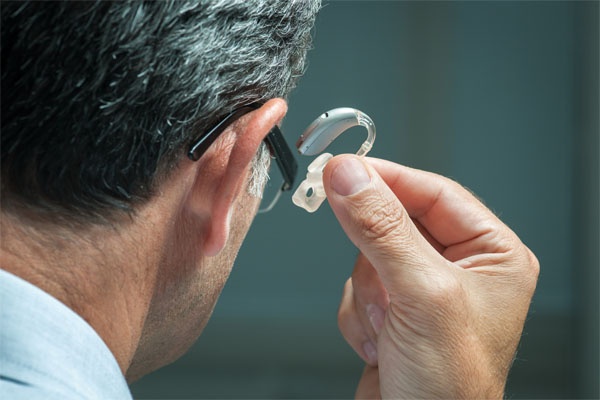

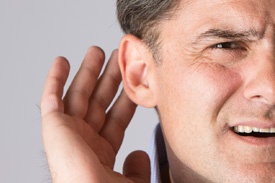
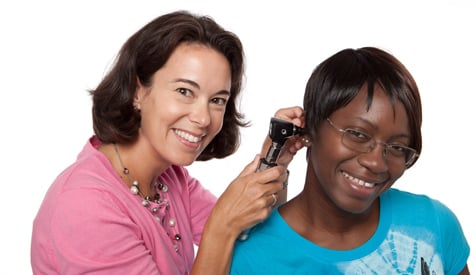
-1.jpg)
